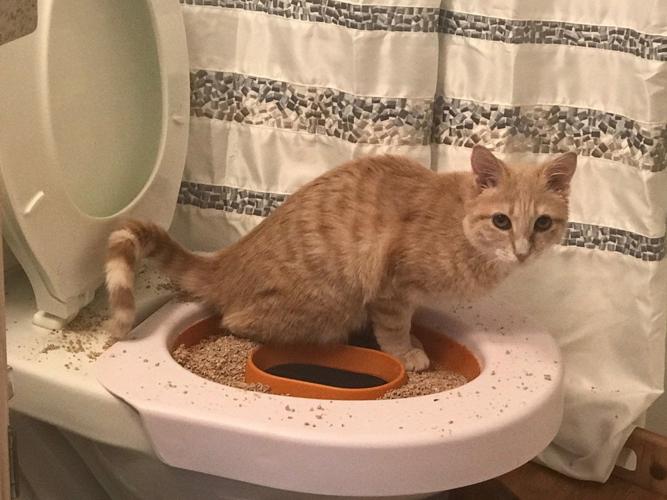Prevent Clogs and Damage: Never Flush Cat Poop Down Your Toilet - Expert Insights
Prevent Clogs and Damage: Never Flush Cat Poop Down Your Toilet - Expert Insights
Blog Article
Everybody has their own individual idea involving Don’t flush cat feces down the toilet.

Introduction
As feline owners, it's vital to bear in mind how we take care of our feline pals' waste. While it might appear convenient to flush feline poop down the toilet, this practice can have destructive effects for both the setting and human wellness.
Alternatives to Flushing
The good news is, there are much safer and much more liable methods to dispose of pet cat poop. Think about the adhering to options:
1. Scoop and Dispose in Trash
One of the most common technique of disposing of feline poop is to scoop it right into a biodegradable bag and toss it in the garbage. Be sure to utilize a specialized clutter scoop and deal with the waste immediately.
2. Usage Biodegradable Litter
Go with biodegradable cat litter made from materials such as corn or wheat. These trashes are environmentally friendly and can be safely thrown away in the garbage.
3. Bury in the Yard
If you have a yard, take into consideration hiding feline waste in a designated location far from vegetable yards and water sources. Be sure to dig deep adequate to avoid contamination of groundwater.
4. Install a Pet Waste Disposal System
Purchase an animal garbage disposal system especially created for cat waste. These systems make use of enzymes to break down the waste, decreasing smell and environmental influence.
Health Risks
Along with ecological problems, purging cat waste can additionally pose health threats to human beings. Pet cat feces might have Toxoplasma gondii, a bloodsucker that can trigger toxoplasmosis-- a possibly serious disease, especially for pregnant women and individuals with weakened body immune systems.
Ecological Impact
Flushing pet cat poop presents dangerous microorganisms and parasites right into the supply of water, posing a considerable risk to marine communities. These contaminants can negatively affect aquatic life and concession water high quality.
Conclusion
Responsible animal possession expands past supplying food and sanctuary-- it likewise involves correct waste administration. By avoiding purging feline poop down the toilet and going with alternate disposal methods, we can decrease our ecological footprint and secure human health.
Why You Should Never Flush Cat Poop Down the Toilet
A rose by any other name might smell as sweet, but not all poop is created equal. Toilets, and our sewage systems, are designed for human excrement, not animal waste. It might seem like it couldn’t hurt to toss cat feces into the loo, but it’s not a good idea to flush cat poop in the toilet.
First and foremost, assuming your cat uses a litter box, any waste is going to have litter on it. And even the smallest amount of litter can wreak havoc on plumbing.
Over time, small amounts build up, filling up your septic system. Most litter sold today is clumping; it is made from a type of clay that hardens when it gets wet. Ever tried to scrape old clumps from the bottom of a litter box? You know just how cement-hard it can get!
Now imagine just a small clump of that stuck in your pipes. A simple de-clogger like Drano isn’t going to cut it. And that means it’s going to cost you big time to fix it.
Parasitic Contamination
Believe it or not, your healthy kitty may be harboring a nasty parasite. Only cats excrete Toxoplasma in their feces. Yet it rarely causes serious health issues in the cats that are infected. Most people will be fine too if infected. Only pregnant women and people with compromised immune systems are at risk. (If you’ve ever heard how women who are expecting are excused from litter cleaning duty, Toxoplasma is why.)
But other animals may have a problem if infected with the parasite. And human water treatment systems aren’t designed to handle it. As a result, the systems don’t remove the parasite before discharging wastewater into local waterways. Fish, shellfish, and other marine life — otters in particular — are susceptible to toxoplasma. If exposed, most will end up with brain damage and many will die.
Depending on the species of fish, they may end up on someone’s fish hook and, ultimately on someone’s dinner plate. If that someone has a chronic illness, they’re at risk.
Skip the Toilet Training
We know there are folks out there who like to toilet train their cats. And we give them props, it takes a lot of work. But thanks to the toxoplasma, it’s not a good idea.

We were introduced to that write-up about How to Dispose of Cat Poop and Litter Without Plastic Bags from a friend on a different web page. Sharing is caring. Who knows, you will be doing someone a favor. Many thanks for your time. Please check our site back soon.
Book Inspection Report this page